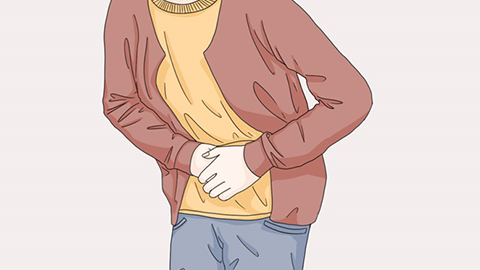What could be the reason for a 13-year-old girl's menstrual period lasting over 40 days, and what should be done?
Generally, if a 13-year-old girl experiences menstrual bleeding that lasts for 40 days without stopping, it may be caused by endocrine disorders during puberty, excessive emotional fluctuations, dysfunctional uterine bleeding, endometritis, or polycystic ovary syndrome. It is recommended to seek medical attention promptly, identify the underlying cause, and then improve the condition under a doctor's guidance through general management, medication, and other treatments. The specific analysis is as follows:

1. Puberty-related endocrine disorders: At age 13, a girl’s ovarian function is not yet fully mature, leading to unstable hormone secretion, which can result in irregular menstrual cycles and prolonged periods. Maintaining a regular daily routine, avoiding staying up late, ensuring 8–9 hours of sleep per day, eating a balanced diet rich in protein and vitamins, and avoiding picky eating or restrictive diets can help gradually improve symptoms as the body develops.
2. Excessive emotional fluctuations: High academic pressure or family upheavals can cause significant emotional changes, affecting the function of the hypothalamic-pituitary-ovarian axis and leading to prolonged menstruation. Parents should communicate with their child regularly to provide emotional support and accompany her in 30 minutes of outdoor physical activity daily, such as jumping rope or walking, to help relieve stress and maintain emotional stability.
3. Dysfunctional uterine bleeding: Hormonal imbalance causes continuous shedding of the endometrium, manifesting as prolonged menstruation with variable blood flow. Medications such as estradiol valerate tablets, progesterone capsules, or dydrogesterone tablets should be used according to medical advice to regulate hormone levels and stop bleeding.
4. Endometritis: Bacterial infection due to poor menstrual hygiene causes inflammation that stimulates the endometrium, resulting in persistent bleeding accompanied by lower abdominal pain and foul-smelling vaginal discharge. Antibiotics such as cefixime granules, amoxicillin-clavulanate potassium dry suspension, or azithromycin dry suspension may be prescribed to reduce inflammation.
5. Polycystic ovary syndrome (PCOS): Hormonal and metabolic abnormalities lead to infrequent or prolonged menstrual cycles, often accompanied by hirsutism and abnormal weight gain. Medications such as ethinylestradiol/cyproterone acetate tablets, drospirenone/ethinylestradiol tablets, or spironolactone tablets should be taken as directed by a physician to manage the condition.
In daily life, it is important to keep the abdomen warm during menstruation and avoid cold exposure and strenuous exercise. Choose breathable cotton sanitary products and change them frequently to maintain external genital hygiene. Avoid consuming raw, cold, or spicy foods; drink plenty of warm water; and practice proper self-care to support the restoration of normal menstrual function.







